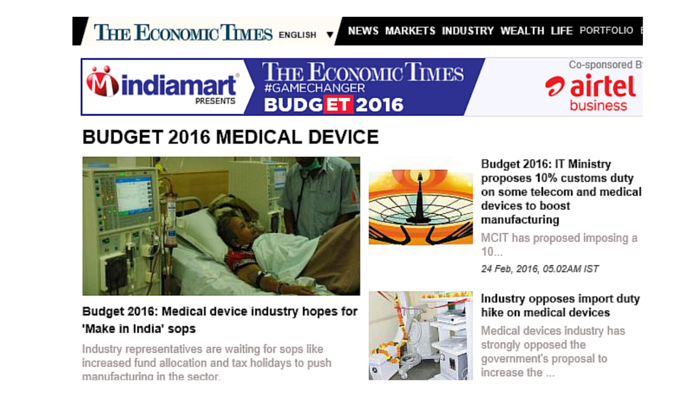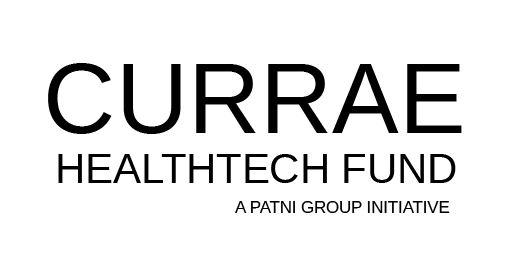
Budget 2016: Medical device industry hopes for ‘Make in India’ sops
Quote given to Economic Times article:
NEW DELHI: Even as controversy revolves around the high prices global drug makers charge on cardiac stents, orthopedic implants and intra-ocular lenses, India’s $4 billion medical devices industry has called for many measures to bolster its business prospects.
With the union budget closing in, industry representatives are waiting for sops like increased fund allocation and tax holidays to push manufacturing in the sector.
A tax holiday would make it easier for medical technology companies to set up new manufacturing plants, according to Varun Khanna, India and South Asia managing director of Becton, Dickinson & Co. (BD), a global medical technology company. “It should be imperative to create an enabling environment to enhance infrastructure and investments across the healthcare ecosystem,” he said.
Increasing government support for domestic manufacturers by way of allocating a portion of the ‘Startup India’ funds towards medical devices R&D would drive innovation in the sector, according to Apoorva Patni, Director, Patni Healthcare. This would help in the creation of devices that are tailored to Indian patients needs, he said.
Increasing fund allocation towards innovation, science and technology would also promote better linkages between the industry, academia and R&D labs, added Khanna. At the same time, importers are still calling for a relaxation in medical device import duty, which the government recently hiked to 7.5% from 5%.
Around 70% of India’s medical device needs are catered to by imports. “The increase can be an impediment towards providing quality patient care in India,” said Khanna, adding that reducing the duty would likely reduce the overall cost of treatment.
Industry representatives fighting the recent hike argue that raising the tariffs would neither incentivise self-reliance among indigenous manufacturers nor ensure quality products at more affordable rates.
Stents provided by global manufacturers, for instance, undergo a stringent development and testing phase.
“When we develop a new drug-related stent, we destructively test at least 60,000 devices over a span of several years,”
Jason R. Weidman, Vice President and General Manager, Medtronic Coronary and Renal Denervation, earlier told ET in an interview. “I doubt that, with the rapidity that some of these products (in India) have come out, they’ve done what we’ve done,” he added.
Relaxing the duty would also enable better penetration of medical devices in the country and may also attract Foreign Direct Investment (FDI) in the sector, added the Advanced Medical Technology Association (AdvaMed), an association of medical device manufacturers.


No Comments